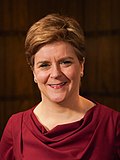
Back Elecciones municipales del Reino Unido de 2022 Spanish Élections locales britanniques de 2022 French 2022年英國地方選舉 YUE
| |||||||||||||||||||||||||||||||||||||||||||||||||||||||||||||||||||||||||||||||||||||
| |||||||||||||||||||||||||||||||||||||||||||||||||||||||||||||||||||||||||||||||||||||
|---|---|---|---|---|---|---|---|---|---|---|---|---|---|---|---|---|---|---|---|---|---|---|---|---|---|---|---|---|---|---|---|---|---|---|---|---|---|---|---|---|---|---|---|---|---|---|---|---|---|---|---|---|---|---|---|---|---|---|---|---|---|---|---|---|---|---|---|---|---|---|---|---|---|---|---|---|---|---|---|---|---|---|---|---|---|
| Turnout | 35.6%[1][2][3] | ||||||||||||||||||||||||||||||||||||||||||||||||||||||||||||||||||||||||||||||||||||
| |||||||||||||||||||||||||||||||||||||||||||||||||||||||||||||||||||||||||||||||||||||
 Map showing party control of councils following the elections.
| |||||||||||||||||||||||||||||||||||||||||||||||||||||||||||||||||||||||||||||||||||||

- London borough
- Metropolitan borough
- Unitary authority
- District council
- City of London Corporation
- No election
The 2022 United Kingdom local elections took place on Thursday 5 May 2022. These included elections for all London borough councils, and for all local authorities in Wales and Scotland. Most seats in England were last up for election in 2018 and in Scotland and Wales in 2017. The elections coincided with the 2022 Northern Ireland Assembly election. In 91 cases, most of them in Wales, council seats were uncontested, each having only one candidate. Three seats in Scotland remained unfilled as no one nominated to fill them.
The local elections took place amid the Partygate scandal, in which it was found that numerous parties had been held at 10 Downing Street during national COVID-19 lockdowns, and COVID-19 social distancing laws were breached by numerous individuals. Public dissatisfaction over the events led to a decline in public support for Boris Johnson, the government led by him, and the Conservatives as a whole.
Across Great Britain, the governing Conservative Party had a net loss of 485 seats in comparison to 2017 in Scotland and Wales and 2018 in England, whilst Labour gained 108 seats (22 in England, 20 in Scotland, and 66 in Wales). The Liberal Democrats and Greens made gains of 224 seats and 87 seats, respectively, which exceeded those of the Labour Party in England but were also seen to a more modest extent in Scotland and Wales.
- ^ "Report on the May 2022 local elections in England". www.electoralcommission.org.uk. 21 September 2022. Retrieved 13 September 2023.
- ^ "Report on the May 2022 Scottish council elections". www.electoralcommission.org.uk. 21 September 2022. Retrieved 13 September 2023.
- ^ "Report on the May 2022 elections in Wales". www.electoralcommission.org.uk. 21 September 2022. Retrieved 13 September 2023.
- ^ "Local Council Political Compositions". Keith Edkins. Retrieved 7 March 2025.
- ^ Cite error: The named reference
After2022was invoked but never defined (see the help page). - ^ "Local elections 2025 in maps and charts". BBC News. 3 May 2025.
Cite error: There are <ref group=lower-alpha> tags or {{efn}} templates on this page, but the references will not show without a {{reflist|group=lower-alpha}} template or {{notelist}} template (see the help page).





